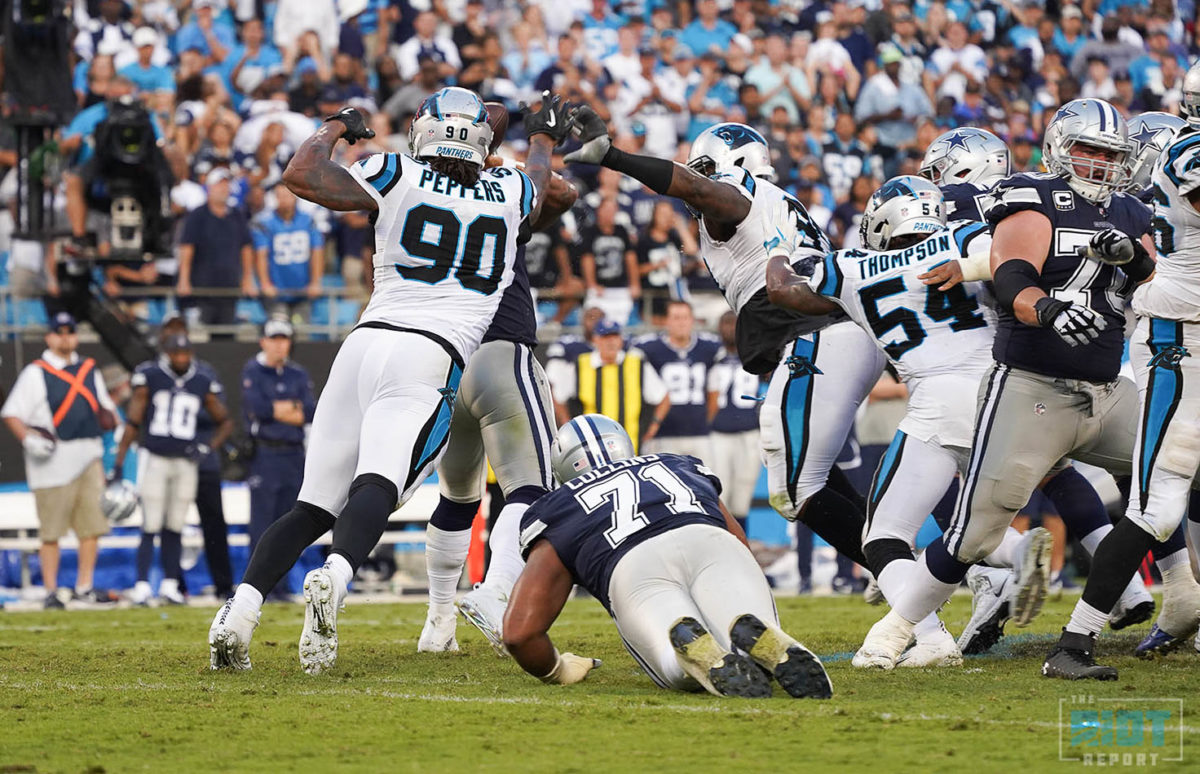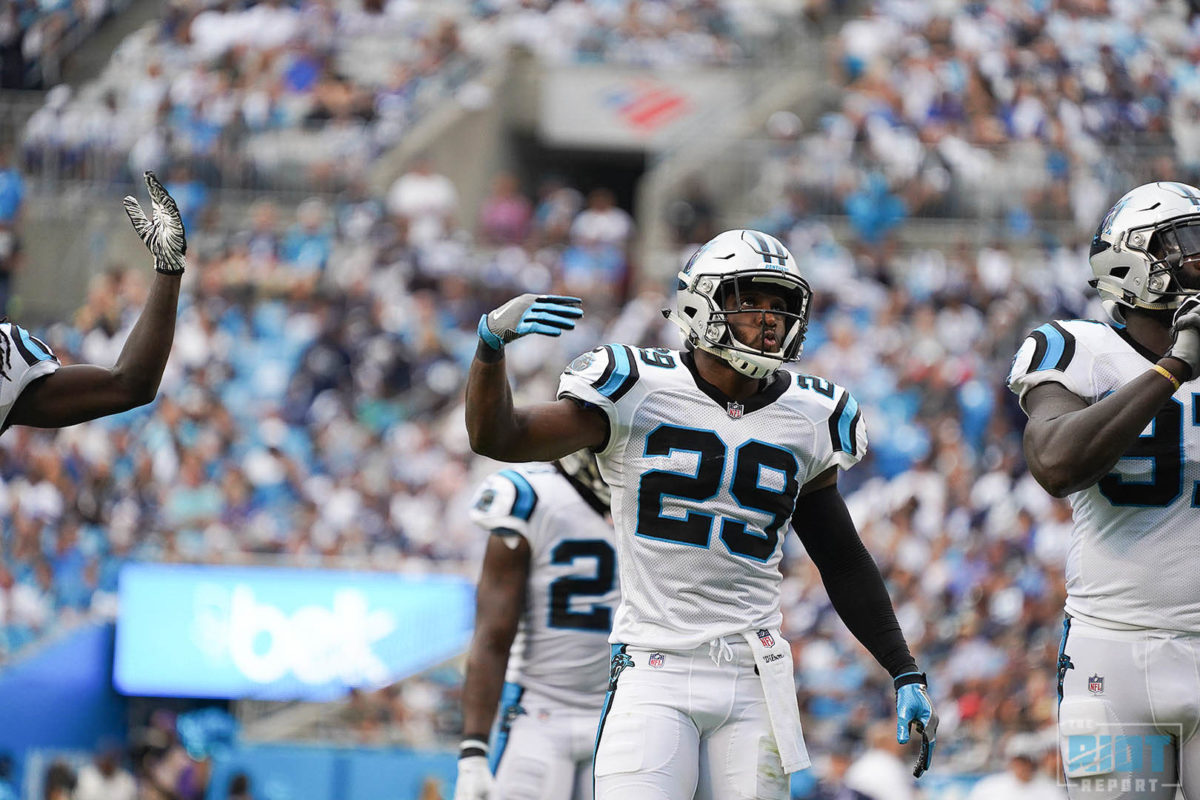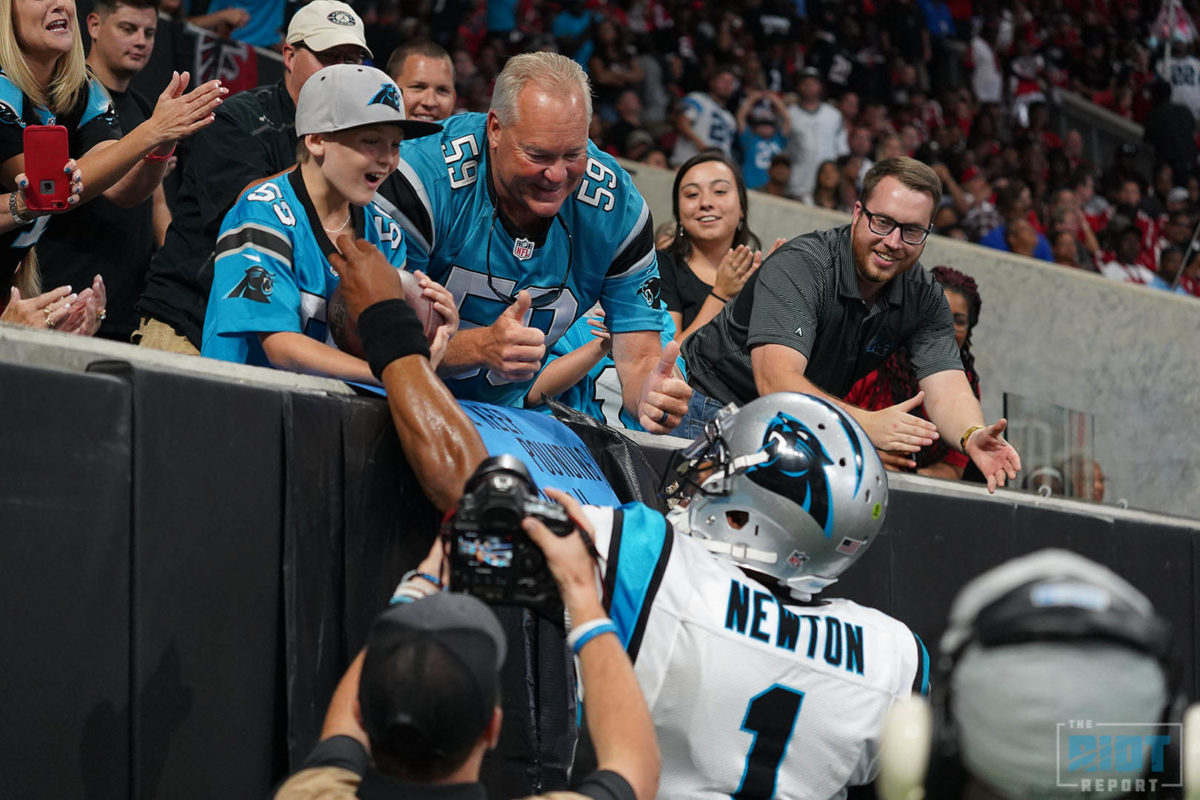The Panthers are currently one of just four teams in the NFC with a record of over .500, and with Washington being one of four teams with an even .500 record, the Panthers have a chance to move themselves that little bit further into the early playoff picture. While there is a long way to go until January, it should be noted that while teams who started the season 4-1 between 1990 and 2013 make the playoffs 83% of the time, that number drops to 63% for teams who start 3-2. While both those numbers are quite favorable for the Panthers, given that they are in the same division as the red-hot Saints, they will likely want to go into the final three weeks of the seasons with as many wins as they can manage. So what do they need to do to come back from Washington with a win?
Get To Smith

The Panthers’ pass rush wasn’t as bad as the box score numbers suggest against the Giants, but that doesn’t mean they were great either. The Washington offensive line is, on paper at least, better than the Giants group they faced a week ago, but given that Eric Washington is still growing into his role of defensive coordinator, this is an area where it would not be unreasonable to expect some growth on a week-to-week basis. Some of this is going to be down to usage, as one thing that didn’t seem to work hugely well against the Giants was the use of Peppers as a 3-tech, and given the quality they have at defensive tackle, there is really no need to use Peppers or Horton in this way unless it is shown to be successful.
What they do need to do from a personnel perspective, however, is find somebody who can take some pressure from Addison in terms of generating pressure off the edge. Wes Horton is good for a handful of sacks per season, but is primarily a run defender, and Peppers is finally starting to show his age with his ability to generate pressure looking to have fallen away – at least at this stage of the season. Efe Obada has shown some nice things off the edge in the past two weeks, but needs to see more snaps if he is able to help the Panthers’ pass rush in any significant way – neither Haynes or Cox have shown much in the way of pass rush thus far. This isn’t something to panic about just yet, but if the Panthers are going to consistently struggle to get pressure on opposing quarterbacks, this is going to make it hard for them to compete in the postseason, should they get there.
Slow Down The Passing Game

Apart from allowing a couple of chunk plays against the Giants, the Panthers did a good job of limiting the Giants’ rushing game on the whole last week, but the passing defense has been something of a mixed bag throughout the season thus far. While they have done a good job of forcing turnovers – their interception rate of 5% is fourth in the NFL – they have been somewhat reliant on these interceptions to limit teams in the air as their yards-per-attempt-allowed ranks a worrisome 27th.
Despite facing three of the NFL’s best receivers, James Bradberry has actually done an excellent job with opposing #1 receivers combining for 19 receptions and 273 yards on 34 targets with one touchdown – and a good chunk of those yard came when those players weren’t going against Bradberry. What is worrisome, however, is that secondary receivers have managed to combine for 21 receptions for 344 yards and two touchdowns on just 27 targets. It is hard to assign this yardage to any one defender, as this has been gained against a mixture of corners and safeties, but there are some generalized things the Panthers could do to prevent themselves from being torn apart by the likes of Cole Beasley and Tyler Boyd.
Most significantly, the Panthers have allowed too much early separation to this point in the season, and while it is important to avoid being beaten over the top, the Panthers play so much off coverage that they run the risk of allowing teams to just nickel and dime them up and down the field. This then also allows opposing offenses to generate short second downs where they can afford to take shots knowing they have a manageable third down to come back to – one way to limit these gains is simply to play more press or close coverage, and while this does run the risk of getting beat deep, the Giants showed on Sunday that if teams are able to get the ball out productively in under two seconds, it is going to be very difficult to generate a pass rush. Washington doesn’t have a lot of elite deep receiving options, and while Paul Richardson can’t be underestimated, if the Panthers’ allow a receiver to go off on them this week, it will be more to do with the Panthers than the opposing receiver.



